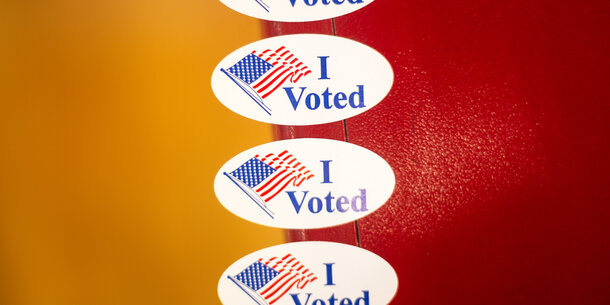This testimony given before the House Administration Committee’s Election Subcommittee. The written testimony is here.
This is a critical moment for our democracy and a critical aspect of the fight for our democracy. As you all know, the Voting Rights Act was perhaps the most effective civil rights law our nation has ever had — vital to the drive for a vibrant multiracial democracy in our country.
As you know, eight years ago, the U.S. Supreme Court gutted the most effective part of that law. Members of Congress of both parties have the power and the duty to right that wrong, to modernize the Voting Rights Act and strengthen it to defend our democracy so all Americans can vote.
I want to make three the points building on the testimony that others have said.
First of all, as we’ve just heard, for the past eight years, the absence of pre-clearance, the absence of a strong Voting Rights Act, opened the way for racially discriminatory voting rules and practices across the country. For example, voter purges: removing voters from the rolls can be appropriate or it can remove eligible voters. We found in Brennan Center research that voter purge rates soared in the states that previously had been covered by Section 5 of the Voting Rights Act pre-clearance, 40 percent higher than the rest of the country. All told, 17 million people nationwide were removed from the rolls in just two years. We’ve seen polling place closures and all kinds of other activities around the country that have been described and documented.
And now, in the wake of the 2020 election, the absence of a strong Voting Rights Act has opened the way for the attack on voting that is taking place right now in the states. We keep track of this. As of May 14th of this year, lawmakers and states have introduced more than 389 bills in 48 states that one way or another would curb the vote or restrict voting. And I should note that these are not back-benchers throwing a bill in the hopper to get a good few hours on Twitter. These are bills that are passing and becoming law. Seventeen states have enacted new laws that in one way or another restrict access to voting, and these laws often uncannily target voters of color. And again, were the Voting Rights Act in full effect, were pre-clearance in full effect, these laws would be scrutinized, many would be blocked, many would be blunted.
The second point I want to make is that these racially discriminatory laws are based on a lie. American elections are secure and accountable. Voter fraud in the United States is vanishingly rare. You are, as has been noted many times, more likely to be struck by lightning than to commit in-person voter impersonation in this country. And contrary to the Big Lie about the 2020 election, it was extraordinarily well run, as confirmed by the Department of Homeland Security, as confirmed by 60 courts, as confirmed by the Justice Department under President Trump. And I will note that this week, the Republican legislature in Michigan put out a report confirming there was no substantial voter fraud there, and the election was well run there.
Yet this is a lie that justifies a conspiracy theory that provides the pretext for discriminatory voting laws being pushed and passed all over the country. And I should note again the racial subtext, unfortunately, is rarely far from the surface. When former President Trump targeted and called out and sought the removal of the effective votes from voters in Detroit and Philadelphia, in Milwaukee and Atlanta, it wasn’t very subtle what the implications of that were. All the more reason why conspiracy theories should not be allowed to deny people the right to vote, and why Congress and members of both parties can once again protect that right to vote with a strong Voting Rights Act.
I’ll note finally as a third point that it is important that this legislation be understood to work in tandem with the For the People Act, with H.R. 1, which has already passed the House of Representatives. Both are vital. Both are needed. The John Lewis Voting Rights Advancement Act in effect is forward-looking. It deals with pre-clearance for future legislative proposals. H.R. 1 would set national standards for elections, including laws that have been passed right now. Both are constitutional. Both are well-crafted. Both are needed. We urge the support of Congress for both of them.
Finally, as you know, John Lewis’s name is on this bill. He gave so much of his blood and of his own soul and courage to bring the Voting Rights Act into effect. Members of both parties over many decades worked together in this effort. We urge you to once again carry forward his legacy, carry forward his name, by strengthening, modernizing this vital piece of American law.






